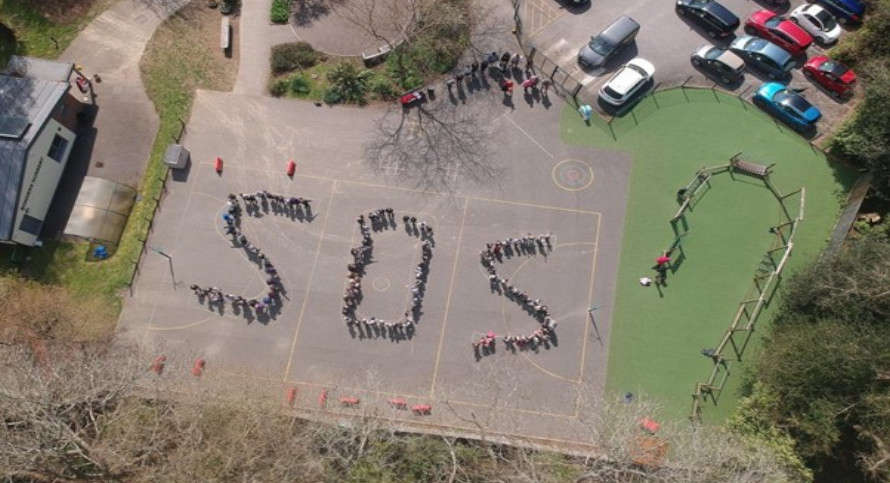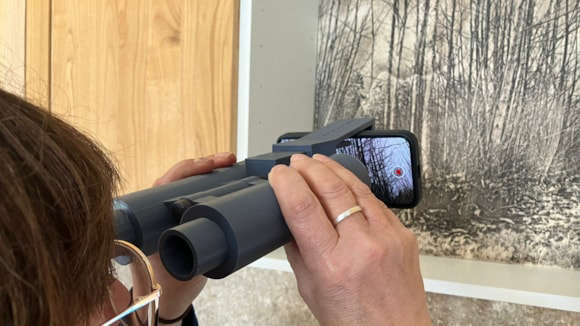
Residents of Uckfield and the surrounding villages are campaigning to have their voices heard and fight for the future of Uckfield Leisure Centre.
They want Wealden District Council to continue running the Uckfield Leisure Centre as they do with a range of other sport and leisure facilities across Wealden.
Why is the Leisure Centre under threat?
Priorities elsewhere: The simple answer is that Wealden District Council (WDC) decided over two years ago to stop running the Leisure Centres in Heathfield and Uckfield and focus on leisure developments in Crowborough and Hailsham.
Land ownership: Once WDC pull out, Uckfield Leisure Centre then becomes the responsibility of East Sussex County Council (ESCC) because the land it stands on is owned by ESCC. The problem is that in East Sussex, the District Council has a budget and some staffing to run sport, fitness, wellbeing and leisure facilities, while ESCC does not. Therefore, from the moment WDC decided to pull out from Uckfield, anything that required funding e.g. a swimming pool, was going to face probable closure. The decision to pull out happened over two years ago and long before the current energy price crisis.
Energy costs: All community swimming pools require subsidy. Overall, over the long term (many years), the cost of subsidising Uckfield Leisure Centre has fallen. It is true that fuel prices have risen sharply since early 2022 but they are now falling again. It would be a tragedy to close a swimming pool for the sake of a short term problem. There was government support to help leisure centres survive the pandemic and there has been some government support to help swimming pools manage the big increases in energy prices.
Provision for swimming: Wealden is below the amount of swimming pool required and expected for its population. This includes when the new developments at Hailsham and Crowborough are added (e.g. an additional pool is being added at Crowborough). This shortage of swimming facilities is before you count the additional housing and population that is yet to come in Wealden, including the housing developments at Uckfield.
So, if the swimming pool at Uckfield closes, there will be an immediate need to have a swimming pool.
What possible solutions are there?
Energy costs: The best solution would be to invest in green energy. This is good for reducing running costs and great for the environment and saving the planet. Solar panels - A typical photovoltaic (PV) installation for a building like this might cost £120,000 but the savings would be around £20,000 to £25,000 a year, so it would pay for itself in about 5 to 6 years and after that, the savings would continue. Furthermore, the angle of the roof faces South, which will make PV panels very efficient. Ground Source Heat Pumps. Uckfield Leisure Centre has an ideal, very large, South facing grass field next to it. It is a perfect location to instal a Ground Source Heat Pump. Ground source Heat Pumps are much more efficient than Air Source HHeat Pumps. Combining Solar Panels and a Ground Source Heat Pump would dramatically reduce costs.
Net Zero commitments: Central and local governments have all pledged to cut carbon emissions. There are funds available to make buildings more energy efficient. WDC and ESCC could bid for e.g. a Ground Source Heat Pump installation.
Government Grants to save swimming pools: The Swimming Pool Support Fund has been set up for just the issue that Uckfield faces. The government's Swimming Pool Support Fund will provide a total of £63.3 million to local authorities in England as a support package for public leisure facilities with swimming pools.
More than £20m is available in revenue grants to support facilities with swimming pools with increased cost pressures leaving them most vulnerable to closure or service reduction. While £40m will be made available for capital investment to improve the energy efficiency of these public facilities in the medium to long term.
Community Infrastructure Levy (CIL): The Community Infrastructure Levy (CIL) is a charge that local authorities can set on new development in order to raise funds to help fund the infrastructure, facilities and services - such as schools or transport improvements - needed to support new homes and businesses. We should spend some of the CIL money on improving the Leisure Centre.
Climate change: Sports and Leisure facilities should, wherever possible, be sited in the centre of towns, so that we reduce car use and global warming. The current Uckfield site should be used as a facility rather than an out of town site.
Town centre regeneration: ESCC, WDC and the Chamber of Commerce could work together and look at what the impact on Uckfield High Street shops would be if the Leisure Centre was to close. How many people are coming into the town to use the Leisure Centre and then popping into the shops while one family member is using the facilities or afterwards?
Health: Councils need to look at the costs to the health services in the longer term of closing the Leisure Centre and removing access to the many health and wellbeing facilities it has (swimming, fitness, squash, dance, badminton, football, rugby, aerobics etc).
Social Prescribing: There is increasing evidence of the power of social prescribing to improve a whole range of physical and mental health concerns as well as quite a body of evidence of how doing things in a group / community is much better for people. The negative impact of loneliness on life expectancy is something we can address. The positive impact of exercise and community activity on reducing problems with our adult social care system shows that this must be something we do more of.
Why this is important
To close the Leisure Centre or to close the swimming pool would be a tragic loss to our community:
● Being able to swim remains an essential life skill for anyone. 11 Primary Schools and Uckfield College currently use Uckfield swimming pool to teach children to swim. Swimming is a compulsory and statutory part of the National Curriculum and must be taught to all children.
● Teaching children to swim has been part of the curriculum for many decades. If children are not taught to swim, we will start to have a generation where some people cannot swim and that will inevitably lead to more deaths by drowning.
● Swimming positively contributes to:
○ physical fitness, particularly for those who cannot do other forms of higher impact sport
○ mental wellbeing
○ to individual and community development
○ and helps to reduce the burden to our health and social care system because it is the only exercise some people (who cannot do high impact activities) can do.
The community are urging people to please let their Councillors know how important this is.
 The University of Brighton's Wild House proposes a radical blueprint for sustainable social housing
The University of Brighton's Wild House proposes a radical blueprint for sustainable social housing
 Man jailed for £100,000 fraud targeting elderly and vulnerable people
Man jailed for £100,000 fraud targeting elderly and vulnerable people
 Former Sussex Police officer dismissed for using racist language
Former Sussex Police officer dismissed for using racist language
 Friday Sport Preview - (25th April 2025)
Friday Sport Preview - (25th April 2025)
 DGH Courtyard to be transformed into a wellbeing space
DGH Courtyard to be transformed into a wellbeing space
 Magnificent Motors to Supercharge the May Bank Holiday Weekend
Magnificent Motors to Supercharge the May Bank Holiday Weekend
 Sunday's the big day - despite breaking a toe!
Sunday's the big day - despite breaking a toe!
 Landmark ruling saves ancient woodland from developers
Landmark ruling saves ancient woodland from developers






